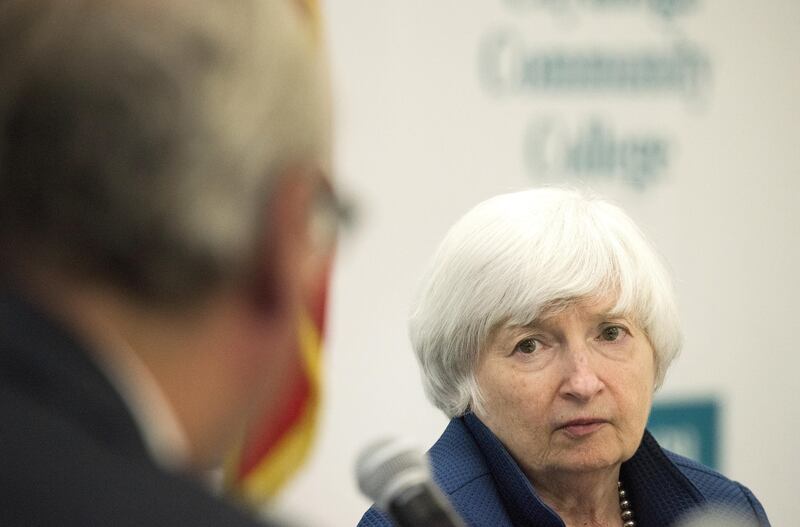Last week ended with the US jobs data affirming the underlying strength of the US economy, and pointing the markets in the direction of a Fed interest rate hike by the end of the year.
Notwithstanding that non-farm payroll employment fell by 33,000 in September on account of hurricanes Harvey and Irma, this weakness will likely reverse in the coming months and the bulk of the other data published was strong. The unemployment rate fell to a 16-year low of 4.2 per cent from 4.4 per cent, while average hourly earnings increased by 0.5 per cent month on month, lifting the annual growth rate to a nine-month high of 2.9 per cent. The data came on the back of surprisingly strong manufacturing and non-manufacturing activity for the month, with the accumulated effect of the week’s news to catapult expectations for a December rate hike to in excess of 90 per cent, up from 70 per cent previously.
Market certainty about what the Fed will do in the next few months does not extend into the next year however. This is because with Janet Yellen’s term as Fed Chair coming to an end next February, the markets are becoming nervous about what will follow her; about whether she will be renewed in the role, or if not, who might replace her.
After a stuttering start, the Fed under Yellen’s stewardship has become a more stable and predictable institution in the way that it operates. It has completed the tapering of Quantitative Easing (QE), begun to raise interest rates and has also started the delicate process of reducing the $4.5 trillion balance sheet of the world’s most important central bank. All of this has been accomplished without rocking the economy or the markets too sharply. Such achievements might normally make Yellen a shoe-in to be renewed as Fed Chair. But Washington under President Trump is anything but normal and the US President has let it be known that he is considering his options, having been rumoured to be interviewing candidates recently with a view to making an announcement in the coming weeks.
__________
Read more:
Trump aides finalise list of candidates to head Federal Reserve
Are markets flirting with euphoria or complacency?
__________
Although the differences between the various candidates for the role might usually be considered to be relatively minor, amounting more to nuances rather than reflecting serious disagreements over policy, in this instance there are some fairly important issues at stake. These are about whether to appoint a Fed Chair that will ensure continuity with the Yellen years, in terms of the process of monetary policy setting and over matters of regulatory oversight.
Candidates who fall into this category beyond Janet Yellen herself might include Jerome Powell, an existing Fed Governor, and Neel Kashkarian a regional Fed president. The alternative, however, would be to appoint someone who might look at interest rate setting rather differently, by applying a more rules-based system to the process of monetary policy-making, while also potentially lightening up the regulatory burden on the financial system, both approaches that have support in the Republican Congress. The Stanford economist John Taylor is the most obvious candidate that comes to mind in view of the famous rate setting rule that he authored, while Kevin Warsh, a former Fed governor in the Bush years, also has strong support.
Of course there is another element in the mix, and probably the most important, which is what President Trump wants from a new Fed chair. The idea that Trump might require a pledge of loyalty from his appointee for example, as he appears to have done with leaders of other government institutions, is something that markets are understandably wary of. The danger is that loyalty will too easily become the thin end of a wedge that quickly sees the Fed lose its reputation for independence. Gary Cohn, the President’s chief economic adviser was previously seen as the favourite to succeed Yellen as a reward for his loyalty in the first few months of the administration, only recently losing the mantle of front-runner when he fell-out with President Trump over his handling of Charlottesville. The perception is already widespread that Trump really only wants a Fed Chair that will keep interest rates low, and whoever is chosen in the end will have to work hard to disavow markets of this assumption.
Tim Fox is chief economist and head of research at Emirates NBD






